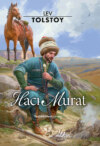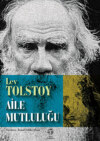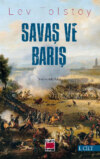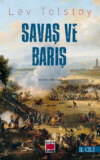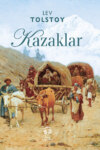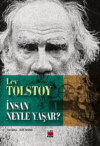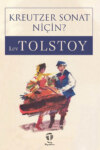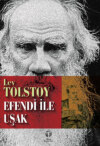Kitabı oku: ««The Kingdom of God Is Within You». Christianity Not as a Mystic Religion but as a New Theory of Life», sayfa 19
CHAPTER XII
CONCLUSION – REPENT YE, FOR THE KINGDOM OF HEAVEN IS AT HAND
1. Chance Meeting with a Train Carrying Soldiers to Restore Order Among the Famishing Peasants – Reason of the Expedition – How the Decisions of the Higher Authorities are Enforced in Cases of Insubordination on Part of the Peasants – What Happened at Orel, as an Example of How the Rights of the Propertied Classes are Maintained by Murder and Torture – All the Privileges of the Wealthy are Based on Similar Acts of Violence.
2. The Elements that Made up the Force Sent to Toula, and the Conduct of the Men Composing it – How these Men Could Carry Out such Acts – The Explanation is Not to be Found in Ignorance, Conviction, Cruelty, Heartlessness, or Want of Moral Sense – They do these Things Because they are Necessary to Support the Existing Order, which they Consider it Every Man's Duty to Support – The Basis of this Conviction that the Existing Order is Necessary and Inevitable – In the Upper Classes this Conviction is Based on the Advantages of the Existing Order for Themselves – But what Forces Men of the Lower Classes to Believe in the Immutability of the Existing Order, from which they Derive no Advantage, and which they Aid in Maintaining, Facts Contrary to their Conscience? – This is the Result of the Lower Classes being Deluded by the Upper, Both as to the Inevitability of the Existing Order and the Lawfulness of the Acts of Violence Needed to Maintain it – Deception in General – Special Form of Deception in Regard to Military Service – Conscription.
3. How can Men Allow that Murder is Permissible while they Preach Principles of Morality, and How can they Allow of the Existence in their Midst of a Military Organization of Physical Force which is a Constant Menace to Public Security? – It is only Allowed by the Upper Classes, who Profit by this Organization, Because their Privileges are Maintained by it – The Upper Classes Allow it, and the Lower Classes Carry it into Effect in Spite of their Consciousness of the Immorality of the Deeds of Violence, the More Readily Because Through the Arrangements of the Government the Moral Responsibility for such Deeds is Divided among a Great Number of Participants in it, and Everyone Throws the Responsibility on Someone Else – Moreover, the Sense of Moral Responsibility is Lost through the Delusion of Inequality, and the Consequent Intoxication of Power on the Part of Superiors, and Servility on the Part of Inferiors – The Condition of these Men, Acting against the Dictates of their Conscience, is Like that of Hypnotized Subjects Acting by Suggestion – The Difference between this Obedience to Government Suggestion, and Obedience to Public Opinion, and to the Guidance of Men of a Higher Moral Sense – The Existing Order of Society, which is the Result of an Extinct Public Opinion and is Inconsistent with the Already Existing Public Opinion of the Future, is only Maintained by the Stupefaction of the Conscience, Produced Spontaneously by Self-interest in the Upper Classes and Through Hypnotizing in the Lower Classes – The Conscience or the Common Sense of such Men may Awaken, and there are Examples of its Sudden Awakening, so that one can Never be Sure of the Deeds of Violence they are Prepared for – It Depends Entirely on the Point which the Sense of the Unlawfulness of Acts of Violence has Reached, and this Sense may Spontaneously Awaken in Men, or may be Reawakened by the Influence of Men of more Conscience.
4. Everything Depends on the Strength of the Consciousness of Christian Truths in Each Individual Man – The Leading Men of Modern Times, however, do not Think it Necessary to Preach or Practice the Truths of Christianity, but Regard the Modification of the External Conditions of Existence within the Limit Imposed by Governments as Sufficient to Reform the Life of Humanity – On this Scientific Theory of Hypocrisy, which has Replaced the Hypocrisy of Religion, Men of the Wealthy Classes Base their Justification of their Position – Through this Hypocrisy they can Enjoy the Exclusive Privileges of their Position by Force and Fraud, and Still Pretend to be Christians to One Another and be Easy in their Minds – This Hypocrisy Allows Men who Preach Christianity to Take Part in Institutions Based on Violence – No External Reformation of Life will Render it Less Miserable – Its Misery the Result of Disunion Caused by Following Lies, not the Truth – Union only Possible in Truth – Hypocrisy Hinders this Union, since Hypocrites Conceal from themselves and Others the Truth they Know – Hypocrisy Turns all Reforms of Life to Evil – Hypocrisy Distorts the Idea of Good and Evil, and so Stands in the Way of the Progress of Men toward Perfection – Undisguised Criminals and Malefactors do Less Harm than those who Live by Legalized Violence, Disguised by Hypocrisy – All Men Feel the Iniquity of our Life, and would Long Ago have Transformed it if it had not been Dissimulated by Hypocrisy – But Seem to have Reached the Extreme Limits of Hypocrisy, and we Need only Make an Effort of Conscience to Awaken as from a Nightmare to a Different Reality.
5. Can Man Make this Effort? – According to the Hypocritical Theory of the Day, Man is not Free to Transform his Life – Man is not Free in his Actions, but he is Free to Admit or to Deny the Truth he Knows – When Truth is Once Admitted, it Becomes the Basis of Action – Man's Threefold Relation to Truth – The Reason of the Apparent Insolubility of the Problem of Free Will – Man's Freedom Consists in the Recognition of the Truth Revealed to him. There is no Other Freedom – Recognition of Truth Gives Freedom, and Shows the Path Along which, Willingly or Unwillingly by Mankind, Man Must Advance – The Recognition of Truth and Real Freedom Enables Man to Share in the Work of God, not as the Slave, but as the Creator of Life – Men Need only Make the Effort to Renounce all Thought of Bettering the External Conditions of Life and Bend all their Efforts to Recognizing and Preaching the Truth they Know, to put an End to the Existing Miserable State of Things, and to Enter upon the Kingdom of God so far as it is yet Accessible to Man – All that is Needed is to Make an End of Lying and Hypocrisy – But then what Awaits us in the Future? – What will Happen to Humanity if Men Follow the Dictates of their Conscience, and how can Life go on with the Conditions of Civilized Life to which we are Accustomed? – All Uneasiness on these Points may be Removed by the Reflection that Nothing True and Good can be Destroyed by the Realization of Truth, but will only be Freed from the Alloy of Falsehood.
6. Our Life has Reached the Extreme Limit of Misery and Cannot be Improved by any Systems of Organization – All our Life and all our Institutions are Quite Meaningless – Are we Doing what God Wills of us by Preserving our Privileges and Duties to Government? – We are put in this Position not Because the World is so Made and it is Inevitable, but Because we Wish it to be so, Because it is to the Advantage of Some of us – Our Conscience is in Opposition to our Position and all our Conduct, and the Way Out of the Contradiction is to be Found in the Recognition of the Christian Truth: Do Not unto Others what you Would Not they should Do unto You – As our Duties to Self Must be Subordinated to our Duties to Others, so Must our Duties to Others be Subordinated to our Duties to God – The Only Way Out of our Position Lies, if not in Renouncing our Position and our Privileges, at Least in Recognizing our Sin and not Justifying it nor Disguising it – The Only Object of Life is to Learn the Truth and to Act on it – Acceptance of the Position and of State Action Deprives Life of all Object – It is God's Will that we should Serve Him in our Life, that is, that we should Bring About the Greatest Unity of all that has Life, a Unity only Possible in Truth.
I was finishing this book, which I had been working at for two years, when I happened on the 9th of September to be traveling by rail through the governments of Toula and Riazan, where the peasants were starving last year and where the famine is even more severe now. At one of the railway stations my train passed an extra train which was taking a troop of soldiers under the conduct of the governor of the province, together with muskets, cartridges, and rods, to flog and murder these same famishing peasants.
The punishment of flogging by way of carrying the decrees of the authorities into effect has been more and more frequently adopted of late in Russia, in spite of the fact that corporal punishment was abolished by law thirty years ago.
I had heard of this, I had even read in the newspapers of the fearful floggings which had been inflicted in Tchernigov, Tambov, Saratov, Astrakhan, and Orel, and of those of which the governor of Nijni-Novgorod, General Baranov, had boasted. But I had never before happened to see men in the process of carrying out these punishments.
And here I saw the spectacle of good Russians full of the Christian spirit traveling with guns and rods to torture and kill their starving brethren. The reason for their expedition was as follows:
On one of the estates of a rich landowner the peasants had common rights on the forest, and having always enjoyed these rights, regarded the forest as their own, or at least as theirs in common with the owner. The landowner wished to keep the forest entirely to himself and began to fell the trees. The peasants lodged a complaint. The judges in the first instance gave an unjust decision (I say unjust on the authority of the lawyer and governor, who ought to understand the matter), and decided the case in favor of the landowner. All the later decisions, even that of the senate, though they could see that the matter had been unjustly decided, confirmed the judgment and adjudged the forest to the landowner. He began to cut down the trees, but the peasants, unable to believe that such obvious injustice could be done them by the higher authorities, did not submit to the decision and drove away the men sent to cut down the trees, declaring that the forest belonged to them and they would go to the Tzar before they would let them cut it down.
The matter was referred to Petersburg, and the order was transmitted to the governor to carry the decision of the court into effect. The governor asked for a troop of soldiers. And here were the soldiers with bayonets and cartridges, and moreover, a supply of rods, expressly prepared for the purpose and heaped up in one of the trucks, going to carry the decision of the higher authorities into effect.
The decisions of the higher authorities are carried into effect by means of murder or torture, or threats of one or the other, according to whether they offer resistance or not.
In the first case if the peasants offer resistance the practice is in Russia, and it is the same everywhere where a state organization and private property exist, as follows:
The governor delivers an address in which he demands submission. The excited crowd, generally deluded by their leaders, don't understand a word of what the representative of authority is saying in the pompous official language, and their excitement continues. Then the governor announces that if they do not submit and disperse, he will be obliged to have recourse to force. If the crowd does not disperse even on this, the governor gives the order to fire over the heads of the crowd. If the crowd does not even then disperse, the governor gives the order to fire straight into the crowd; the soldiers fire and the killed and wounded fall about the street. Then the crowd usually runs away in all directions, and the troops at the governor's command take those who are supposed to be the ringleaders and lead them off under escort. Then they pick up the dying, the wounded, and the dead, covered with blood, sometimes women and children among them. The dead they bury and the wounded they carry to the hospital. Those whom they regard as the ringleaders they take to the town hall and have them tried by a special court-martial. And if they have had recourse to violence on their side, they are condemned to be hanged. And then the gallows is erected. And they solemnly strangle a few defenseless creatures. This is what has often been done in Russia, and is and must always be done where the social order is based on force.
But in the second case, when the peasants do submit, something quite special, peculiar to Russia, takes place. The governor arrives on the scene of action and delivers an harangue to the people, reproaching them for their insubordination, and either stations troops in the houses of the villages, where sometimes for a whole month the soldiers drain the resources of the peasants, or contenting himself with threats, he mercifully takes leave of the people, or what is the most frequent course, he announces that the ringleaders must be punished, and quite arbitrarily without any trial selects a certain number of men, regarded as ringleaders, and commands them to be flogged in his presence.
In order to give an idea of how such things are done I will describe a proceeding of the kind which took place in Orel, and received the full approval of the highest authorities.
This is what took place in Orel. Just as here in the Toula province, a landlord wanted to appropriate the property of the peasants and just in the same way the peasants opposed it. The matter in dispute was a fall of water, which irrigated the peasants' fields, and which the landowner wanted to cut off and divert to turn his mill. The peasants rebelled against this being done. The landowner laid a complaint before the district commander, who illegally (as was recognized later even by a legal decision) decided the matter in favor of the landowner, and allowed him to divert the water course. The landowner sent workmen to dig the conduit by which the water was to be let off to turn the mill. The peasants were indignant at this unjust decision, and sent their women to prevent the landowner's men from digging this conduit. The women went to the dykes, overturned the carts, and drove away the men. The landowner made a complaint against the women for thus taking the law into their own hands. The district commander made out an order that from every house throughout the village one woman was to be taken and put in prison. The order was not easily executed. For in every household there were several women, and it was impossible to know which one was to be arrested. Consequently the police did not carry out the order. The landowner complained to the governor of the neglect on the part of the police, and the latter, without examining into the affair, gave the chief official of the police strict orders to carry out the instructions of the district commander without delay. The police official, in obedience to his superior, went to the village and with the insolence peculiar to Russian officials ordered his policemen to take one woman out of each house. But since there were more than one woman in each house, and there was no knowing which one was sentenced to imprisonment, disputes and opposition arose. In spite of these disputes and opposition, however, the officer of police gave orders that some woman, whichever came first, should be taken from each household and led away to prison. The peasants began to defend their wives and mothers, would not let them go, and beat the police and their officer. This was a fresh and terrible crime: resistance was offered to the authorities. A report of this new offense was sent to the town. And so this governor – precisely as the governor of Toula was doing on that day – with a battalion of soldiers with guns and rods, hastily brought together by means of telegraphs and telephones and railways, proceeded by a special train to the scene of action, with a learned doctor whose duty it was to insure the flogging being of an hygienic character. Herzen's prophecy of the modern Ghenghis Khan with his telegrams is completely realized by this governor.
Before the town hall of the district were the soldiery, a battalion of police with their revolvers slung round them with red cords, the persons of most importance among the peasants, and the culprits. A crowd of one thousand or more people were standing round. The governor, on arriving, stepped out of his carriage, delivered a prepared harangue, and asked for the culprits and a bench. The latter demand was at first not understood. But a police constable whom the governor always took about with him, and who undertook to organize such executions – by no means exceptional in that province – explained that what was meant was a bench for flogging. A bench was brought as well as the rods, and then the executioners were summoned (the latter had been selected beforehand from some horsestealers of the same village, as the soldiers refused the office). When everything was ready, the governor ordered the first of the twelve culprits pointed out by the landowner as the most guilty to come forward. The first to come forward was the head of a family, a man of forty who had always stood up manfully for the rights of his class, and therefore was held in the greatest esteem by all the villagers. He was led to the bench and stripped, and then ordered to lie down.
The peasant attempted to supplicate for mercy, but seeing it was useless, he crossed himself and lay down. Two police constables hastened to hold him down. The learned doctor stood by, in readiness to give his aid and his medical science when they should be needed. The convicts spit into their hands, brandished the rods, and began to flog. It seemed, however, that the bench was too narrow, and it was difficult to keep the victim writhing in torture upon it. Then the governor ordered them to bring another bench and to put a plank across them. Soldiers, with their hands raised to their caps, and respectful murmurs of "Yes, your Excellency," hasten obediently to carry out this order. Meanwhile the tortured man, half naked, pale and scowling, stood waiting, his eyes fixed on the ground and his teeth chattering. When another bench had been brought they again made him lie down, and the convicted thieves again began to flog him.
The victim's back and thighs and legs, and even his sides, became more and more covered with scars and wheals, and at every blow there came the sound of the deep groans which he could no longer restrain. In the crowd standing round were heard the sobs of wives, mothers, children, the families of the tortured man and of all the others picked out for punishment.
The miserable governor, intoxicated with power, was counting the strokes on his fingers, and never left off smoking cigarettes, while several officious persons hastened on every opportunity to offer him a burning match to light them. When more than fifty strokes had been given, the peasant ceased to shriek and writhe, and the doctor, who had been educated in a government institution to serve his sovereign and his country with his scientific attainments, went up to the victim, felt his pulse, listened to his heart, and announced to the representative of authority that the man undergoing punishment had lost consciousness, and that, in accordance with the conclusions of science, to continue the punishment would endanger the victim's life. But the miserable governor, now completely intoxicated by the sight of blood, gave orders that the punishment should go on, and the flogging was continued up to seventy strokes, the number which the governor had for some reason fixed upon as necessary. When the seventieth stroke had been reached, the governor said "Enough! Next one!" And the mutilated victim, his back covered with blood, was lifted up and carried away unconscious, and another was led up. The sobs and groans of the crowd grew louder. But the representative of the state continued the torture.
Thus they flogged each of them up to the twelfth, and each of them received seventy strokes. They all implored mercy, shrieked and groaned. The sobs and cries of the crowd of women grew louder and more heart-rending, and the men's faces grew darker and darker. But they were surrounded by troops, and the torture did not cease till it had reached the limit which had been fixed by the caprice of the miserable half-drunken and insane creature they called the governor.
The officials, and officers, and soldiers not only assisted in it, but were even partly responsible for the affair, since by their presence they prevented any interference on the part of the crowd.
When I inquired of one of the governors why they made use of this kind of torture when people had already submitted and soldiers were stationed in the village, he replied with the important air of a man who thoroughly understands all the subtleties of statecraft, that if the peasants were not thoroughly subdued by flogging, they would begin offering opposition to the decisions of authorities again. When some of them had been thoroughly tortured, the authority of the state would be secured forever among them.
And so that was why the Governor of Toula was going in his turn with his subordinate officials, officers, and soldiers to carry out a similar measure. By precisely the same means, i. e., by murder and torture, obedience to the decision of the higher authorities was to be secured. And this decision was to enable a young landowner, who had an income of one hundred thousand, to gain three thousand rubles more by stealing a forest from a whole community of cold and famished peasants, to spend it, in two or three weeks in the saloons of Moscow, Petersburg, or Paris. That was what those people whom I met were going to do.
After my thoughts had for two years been turned in the same direction, fate seemed expressly to have brought me face to face for the first time in my life with a fact which showed me absolutely unmistakably in practice what had long been clear to me in theory, that the organization of our society rests, not as people interested in maintaining the present order of things like to imagine, on certain principles of jurisprudence, but on simple brute force, on the murder and torture of men.
People who own great estates or fortunes, or who receive great revenues drawn from the class who are in want even of necessities, the working class, as well as all those who like merchants, doctors, artists, clerks, learned professors, coachmen, cooks, writers, valets, and barristers, make their living about these rich people, like to believe that the privileges they enjoy are not the result of force, but of absolutely free and just interchange of services, and that their advantages, far from being gained by such punishments and murders as took place in Orel and several parts of Russia this year, and are always taking place all over Europe and America, have no kind of connection with these acts of violence. They like to believe that their privileges exist apart and are the result of free contract among people; and that the violent cruelties perpetrated on the people also exist apart and are the result of some general judicial, political, or economical laws. They try not to see that they all enjoy their privileges as a result of the same fact which forces the peasants who have tended the forest, and who are in the direct need of it for fuel, to give it up to a rich landowner who has taken no part in caring for its growth and has no need of it whatever – the fact, that is, that if they don't give it up they will be flogged or killed.
And yet if it is clear that it was only by means of menaces, blows, or murder, that the mill in Orel was enabled to yield a larger income, or that the forest which the peasants had planted became the property of a landowner, it should be equally clear that all the other exclusive rights enjoyed by the rich, by robbing the poor of their necessities, rest on the same basis of violence. If the peasants, who need land to maintain their families, may not cultivate the land about their houses, but one man, a Russian, English, Austrian, or any other great landowner, possesses land enough to maintain a thousand families, though he does not cultivate it himself, and if a merchant profiting by the misery of the cultivators, taking corn from them at a third of its value, can keep this corn in his granaries with perfect security while men are starving all around him, and sell it again for three times its value to the very cultivators he bought it from, it is evident that all this too comes from the same cause. And if one man may not buy of another a commodity from the other side of a certain fixed line, called the frontier, without paying certain duties on it to men who have taken no part whatever in its production – and if men are driven to sell their last cow to pay taxes which the government distributes among its functionaries, and spends on maintaining soldiers to murder these very taxpayers – it would appear self-evident that all this does not come about as the result of any abstract laws, but is based on just what was done in Orel, and which may be done in Toula, and is done periodically in one form or another throughout the whole world wherever there is a government, and where there are rich and poor.
Simply because torture and murder are not employed in every instance of oppression by force, those who enjoy the exclusive privileges of the ruling classes persuade themselves and others that their privileges are not based on torture and murder, but on some mysterious general causes, abstract laws, and so on. Yet one would think it was perfectly clear that if men, who consider it unjust (and all the working classes do consider it so nowadays), still pay the principal part of the produce of their labor away to the capitalist and the landowner, and pay taxes, though they know to what a bad use these taxes are put, they do so not from recognition of abstract laws of which they have never heard, but only because they know they will be beaten and killed if they don't do so.
And if there is no need to imprison, beat, and kill men every time the landlord collects his rents, every time those who are in want of bread have to pay a swindling merchant three times its value, every time the factory hand has to be content with a wage less than half of the profit made by the employer, and every time a poor man pays his last ruble in taxes, it is because so many men have been beaten and killed for trying to resist these demands, that the lesson has now been learnt very thoroughly.
Just as a trained tiger, who does not eat meat put under his nose, and jumps over a stick at the word of command, does not act thus because he likes it, but because he remembers the red-hot irons or the fast with which he was punished every time he did not obey; so men submitting to what is disadvantageous or even ruinous to them, and considered by them as unjust, act thus because they remember what they suffered for resisting it.
As for those who profit by the privileges gained by previous acts of violence, they often forget and like to forget how these privileges were obtained. But one need only recall the facts of history, not the history of the exploits of different dynasties of rulers, but real history, the history of the oppression of the majority by a small number of men, to see that all the advantages the rich have over the poor are based on nothing but flogging, imprisonment, and murder.
One need but reflect on the unceasing, persistent struggle of all to better their material position, which is the guiding motive of men of the present day, to be convinced that the advantages of the rich over the poor could never and can never be maintained by anything but force.
There may be cases of oppression, of violence, and of punishments, though they are rare, the aim of which is not to secure the privileges of the propertied classes. But one may confidently assert that in any society where, for every man living in ease, there are ten exhausted by labor, envious, covetous, and often suffering with their families from direct privation, all the privileges of the rich, all their luxuries and superfluities, are obtained and maintained only by tortures, imprisonment, and murder.
The train I met on the 9th of September going with soldiers, guns, cartridges, and rods, to confirm the rich landowner in the possession of a small forest which he had taken from the starving peasants, which they were in the direst need of, and he was in no need of at all, was a striking proof of how men are capable of doing deeds directly opposed to their principles and their conscience without perceiving it.
The special train consisted of one first-class carriage for the governor, the officials, and officers, and several luggage vans crammed full of soldiers. The latter, smart young fellows in their clean new uniforms, were standing about in groups or sitting swinging their legs in the wide open doorways of the luggage vans. Some were smoking, nudging each other, joking, grinning, and laughing, others were munching sunflower seeds and spitting out the husks with an air of dignity. Some of them ran along the platform to drink some water from a tub there, and when they met the officers they slackened their pace, made their stupid gesture of salutation, raising their hands to their heads with serious faces as though they were doing something of the greatest importance. They kept their eyes on them till they had passed by them, and then set off running still more merrily, stamping their heels on the platform, laughing and chattering after the manner of healthy, good-natured young fellows, traveling in lively company.
They were going to assist at the murder of their fathers or grandfathers just as if they were going on a party of pleasure, or at any rate on some quite ordinary business.
The same impression was produced by the well-dressed functionaries and officers who were scattered about the platform and in the first-class carriage. At a table covered with bottles was sitting the governor, who was responsible for the whole expedition, dressed in his half-military uniform and eating something while he chatted tranquilly about the weather with some acquaintances he had met, as though the business he was upon was of so simple and ordinary a character that it could not disturb his serenity and his interest in the change of weather.

